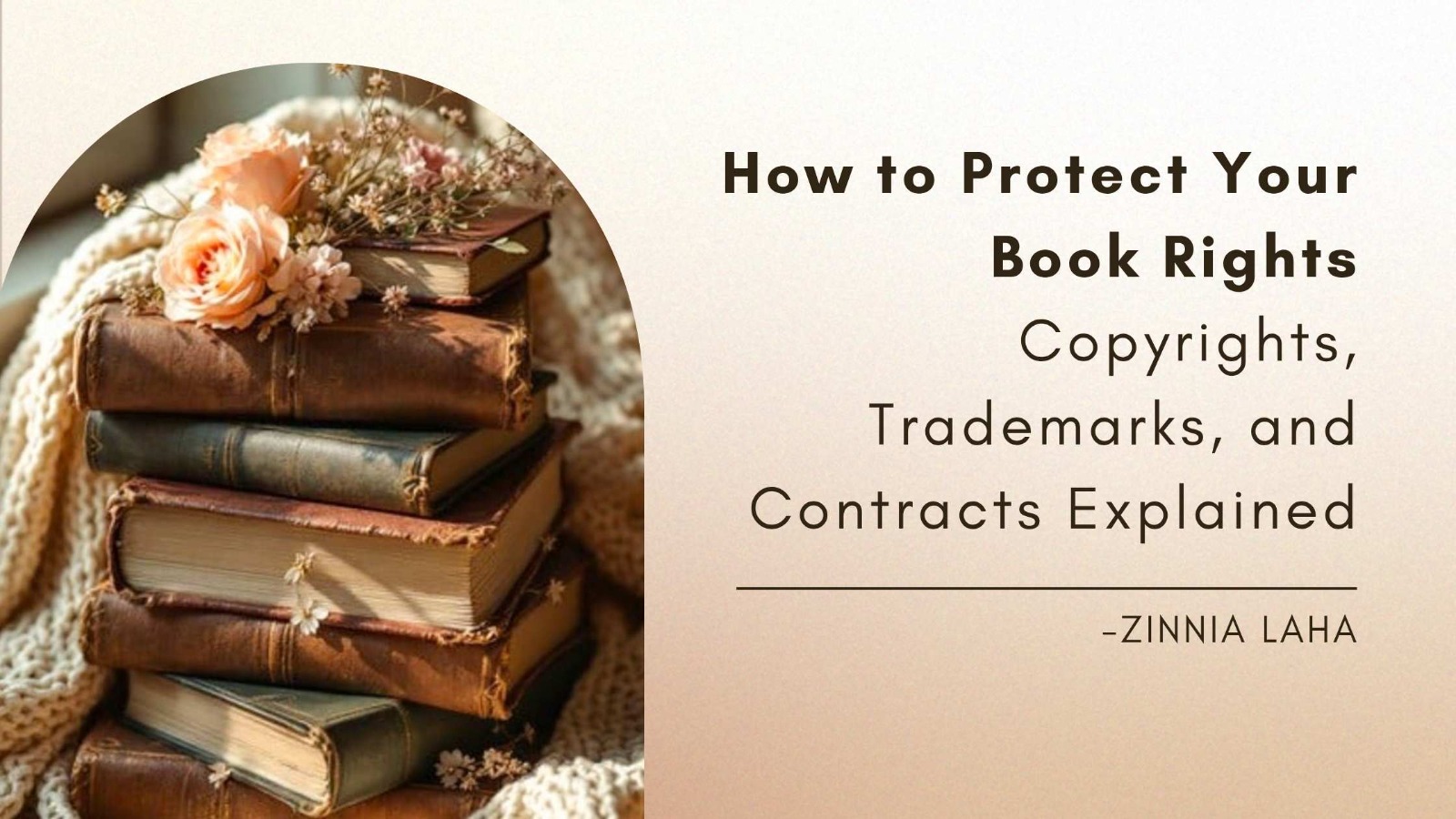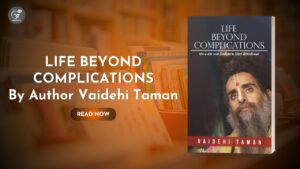As an Indian author, your words are your legacy. They hold immense creative value and, importantly, significant legal and commercial worth. Protecting this intellectual property is paramount to ensuring you reap the full benefits of your hard work and creativity. This detailed guide will walk you through the essential aspects of book copyrights, trademarks, and contracts in India, empowering you to safeguard your literary creations.
I. Copyrights: The Foundation of Your Literary Rights
Copyright is the cornerstone of protecting your book. In India, it is governed by the Copyright Act, 1957, which has been amended over the years to keep pace with evolving landscapes, most recently in 2012.
What does Copyright Protect?
Copyright protects original literary, dramatic, musical, and artistic works, as well as cinematograph films and sound recordings. For authors, this primarily means:
- Your entire book: The text, plot, characters, dialogue, and overall expression of your ideas.
- Derivative works: The right to create adaptations (like a movie or TV show from your book), translations, or abridgements.
What Copyright DOES NOT Protect:
- Ideas, concepts, or themes: Copyright protects the expression of an idea, not the idea itself.
- Titles, names, short phrases, or slogans: These are generally too short to be considered “original literary works” and are typically protected under trademark law, if at all.
- Facts or public domain information: You cannot copyright historical facts, scientific discoveries, or works whose copyright has expired.
Automatic Protection vs. Registration: Why Register?
In India, copyright protection is automatic the moment your original work is created and “fixed in a tangible form” (i.e., written down). You don’t have to register your copyright to own it. However, registering your copyright with the Indian Copyright Office is highly recommended and offers significant advantages:
- Prima Facie Evidence of Ownership: Registration provides legal proof of your ownership, making it much easier to prove infringement in court.
- Public Record: It creates a public record of your authorship and the details of your work.
- Deters Infringement: A registered copyright acts as a deterrent, signaling to potential infringers that you are serious about protecting your rights.
- Facilitates Legal Action: While you can sue for infringement without registration, a registered copyright simplifies the process and strengthens your legal standing, including access to civil and criminal remedies.
Duration of Copyright Protection:
For literary works, copyright protection lasts for the lifetime of the author plus 60 years from the beginning of the calendar year next following the year in which the author dies.
How to Register Copyright for Your Book in India:
The process is straightforward and can be done online:
- Prepare Your Work: Ensure your manuscript is complete and in its final form. This includes checking for errors, formatting, and proper structure.
- Gather Documents:
- Soft copy of your work (preferably in PDF format, less than 10MB).
- No Objection Certificate (NOC) from the publisher/producer (if applicable, for published works).
- Power of Attorney (if filing through an agent/lawyer).
- Proof of identity and address (Aadhaar, PAN card, passport, etc.).
- DD for copyright registration fee (if paying offline).
- Visit the Copyright Office Website: Go to the official portal:
https://copyright.gov.in. - Create an Account: If you’re a new user, register and create your User ID and password.
- Fill Form XIV: This is the main application form. Provide all essential details about yourself, the work (title, language, publication status, type of work), and a declaration of originality. Separate applications are required for each distinct work.
- Pay the Fee: The fee for literary/artistic work is currently ₹500 per work. Payment can be made online via credit/debit card or net banking.
- Submission and Diary Number: Upon successful submission, you will receive a Diary Number, which is your reference for tracking the application status.
- Examination and Objections: The Copyright Office will examine your application (typically within 30 days). If there are any discrepancies or objections (e.g., from a third party claiming rights), you will be notified and given a chance to respond.
- Certificate Issuance: If everything is in order and no objections are sustained, your copyright will be registered, and you will receive a copyright certificate. The entire process usually takes 2-3 months, but can extend if objections arise.
Important Note: Even if your book is unpublished, you can still apply for copyright registration.
II. Trademarks: Protecting Your Book’s Identity
While copyright protects the content of your book, trademarks protect elements that distinguish your book or series in the marketplace, primarily your book title.
Can a Book Title be Trademarked in India?
Yes, but with caveats. A book title can be registered as a trademark under the Trade Marks Act, 1999, if it is distinctive and serves as a source identifier.
- Single Book Titles: Generally, a title for a single book is harder to trademark unless it has acquired a “secondary meaning” in the minds of the public, associating the title specifically with your work and its unique origin. For example, a common phrase used as a book title would likely not be distinctive enough.
- Series Titles: Titles for a series of books (e.g., “The Harry Potter Series“) are much easier to trademark because they inherently act as a brand identifying a consistent source for multiple works.
- Author’s Name/Pseudonym: Your author name or pseudonym, if used to identify your works, can also be trademarked.
- Logos/Imprints: Any unique logo or imprint you use for your author brand can be trademarked.
Why Trademark a Book Title?
If successful, a trademark provides you with the exclusive right to use that title (or a similar one) in relation to books, preventing others from creating confusion in the market. This is crucial for building a recognizable brand for your literary work.
How to Register a Trademark in India for Book Titles:
Trademark registration is done under the Controller General of Patents Designs and Trademarks, Ministry of Commerce and Industry.
- Conduct a Trademark Search: Before applying, it’s crucial to conduct a comprehensive search to ensure no similar trademarks already exist. This can be done online.
- Choose a Unique Mark: Ensure your title is distinctive and not merely descriptive of the book’s content.
- File an Application (Form TM-A):
- Class: For book titles, you’ll typically file under Class 41 of the Nice Classification (Education; providing of training; entertainment; sporting and cultural activities), as this covers publishing services.
- Details: Provide applicant details, the mark itself, and a description of the goods/services (i.e., books, literary works).
- Pay the Fee: Government fees vary (currently ₹4,500 for individuals/startups/small enterprises, ₹9,000 for others, per application per class).
- Examination: The Trademark Office will examine your application for distinctiveness and any pre-existing similar marks. Objections may be raised.
- Publication: If accepted, your trademark will be published in the Trade Marks Journal, allowing third parties to oppose the registration within four months.
- Registration Certificate: If no opposition or if opposition is overcome, the registration certificate will be issued, granting you exclusive rights. The entire process can take 8-24 months.
Note: You can use the “TM” symbol next to your title once you file the application. Once registered, you can use the “®” symbol.
Also Read: Book Marketing Services in India
III. Contracts: Safeguarding Your Rights in Publishing Deals
Publishing contracts are complex legal documents that dictate the terms of your relationship with a publisher. As an author, understanding and carefully reviewing these contracts is vital to protect your rights, royalties, and control over your work.
Key Clauses to Scrutinize in an Indian Publishing Contract:
- Grant of Rights:
- What rights are you granting? Publishers typically ask for exclusive rights to publish your book in certain formats (print, e-book, audiobook) and territories (India, worldwide). Be clear about the scope.
- Subsidiary Rights: These are crucial! They include translation rights, film/TV adaptation rights, merchandising rights, foreign language rights, and more. Negotiate to retain as many of these as possible, or at least a significant share of the revenue generated from them.
- Duration: For how long are you granting these rights? Ideally, you want a clause that allows rights to revert to you if the book goes out of print or sales fall below a certain threshold. Indian copyright lasts your lifetime + 60 years, so publishers often seek rights for this entire duration, but reversion clauses are still important.
- Delivery of Manuscript:
- Deadline: Be realistic about the timeline.
- Acceptance Criteria: What constitutes an “acceptable” manuscript? Avoid vague language that could lead to disputes.
- Copyright Ownership:
- The contract should clearly state that you, the author, retain copyright ownership of your work. The publisher is merely licensed to use it.
- Be wary of clauses that seek to assign copyright entirely to the publisher, as this means you lose control.
- Royalties and Payments:
- Royalty Rate: This is the percentage of sales revenue you receive. Rates vary significantly (e.g., 10-15% for print, higher for e-books).
- Royalty Calculation: Understand whether royalties are based on the book’s net price (what the publisher receives) or the retail price. Net price is usually less favorable to the author.
- Advance: An upfront payment against future royalties. Understand if it’s recoupable (deducted from future royalties).
- Payment Schedule: When and how often will you receive royalty statements and payments? Quarterly or half-yearly is common.
- Audit Clause: This allows you or your representative to audit the publisher’s sales records. Essential for transparency.
- Marketing and Promotion:
- What marketing efforts will the publisher undertake?
- What are your responsibilities as an author in promotion?
- Editing and Revisions:
- Who has the final say on edits? While collaboration is key, ensure your artistic vision is respected.
- Out-of-Print Clause / Reversion of Rights:
- This is critical. If your book sells poorly or the publisher stops actively selling it, this clause allows the rights to revert to you, enabling you to seek another publisher or self-publish. Define “out-of-print” clearly (e.g., sales below a certain number for two consecutive royalty periods).
- Indemnity Clause:
- This clause often states that you, the author, will indemnify the publisher against any legal claims arising from your work (e.g., defamation, copyright infringement). While standard, ensure it’s balanced and doesn’t hold you solely responsible for issues outside your control.
- Termination Clause:
- Under what conditions can either party terminate the agreement? This should include breach of contract by either party.
- Governing Law and Dispute Resolution:
- The contract should specify that Indian law governs the agreement and outline the process for resolving disputes (e.g., arbitration).
The Role of a Literary Agent:
While not mandatory, a good literary agent can be invaluable for Indian authors. They:
- Understand the Market: They know which publishers are best suited for your genre.
- Negotiate Contracts: They are experts in contract terms and can secure better deals (higher advances, better royalty rates, more favorable subsidiary rights).
- Protect Your Rights: They act as your advocate, ensuring your interests are protected throughout the publishing process.
- Handle Administration: They take care of the nitty-gritty, allowing you to focus on writing.
Literary agents typically charge a commission (15% for domestic rights, 20% for international rights) on the deals they secure.
Seeking Legal Counsel:
Regardless of whether you have an agent, it is highly advisable to have a lawyer specializing in intellectual property and publishing law review any publishing contract before you sign it. A small investment upfront can save you significant headaches and financial losses in the long run.
Conclusion: Empowering Your Authorial Journey
Protecting your book rights as an Indian author is a proactive journey. By understanding the nuances of copyrights, trademarks, and publishing contracts, you empower yourself to make informed decisions that safeguard your creative output and ensure your words reach their fullest potential, both artistically and commercially. Invest the time in understanding these legal frameworks, and you’ll build a stronger foundation for a successful and fulfilling authorial career. With Astitva Prakashan, you get complete support of copyright registration. Contact us to publish!




